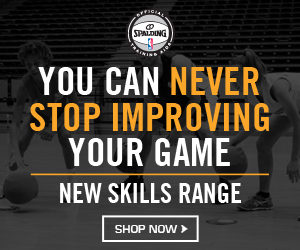Nic Martin is currently the Basketball Development Officer (South) for Basketball Tasmania. Here are some reflections from Nic, who recently completed the Basketball Australia Performance Coach course in Melbourne.
“There are no secrets to success. It is the result of preparation, hard work and learning from failure.” – Colin Powell
This is my favourite quote. It is my motto, my catchphrase and gives direction on how I want to live my life. At one point or another every team I have coached has heard me say this quote or refer to the message it gets across; you need to prepare (beforehand), work hard (during) and reflect (afterwards).
Let’s dive into the specifics of these 3 phases and how they affect a Basketball team and you as a coach…
Prepare
Your preparation will give you confidence when you get to the big game or tournament you have been preparing for.
For a team, your preparation is everything you do beforehand. It is the combination of all of your film sessions, trainings, practice games and team meetings.
As a coach, you need to take this one step further and consider the following:
Season Plan:
- Do you have an overall plan? What do you want your team to achieve?
- Do you know how you want to play? You need to be able sell this to your team in a 2-3min speech
- Do you know where you want them to be at certain stages of the season? How do you monitor your progress?
- Training Plans:
- Make sure your training plans link with your season plan
- Do you have a set template or formula for what your training sessions look like? As a general rule my training sessions are; 1/3 skill, 1/3 concepts and 1/3 game play. This can differ depending on time of season
Scouting:
- Have you watched your upcoming opponent play? How much have you watched? Make sure you have a good balance of watching them play “live” as opposed to just on video
- Can you summarise their key O/D sets and the tendencies of their key players?
- How do you share this information with your players? As a general rule, coaches should try and get as much intel (stats, video, background) as possible and decipher what the players really need to know… Keep it simple!

Team Meetings
- Do you have regular meetings or catch-ups with your staff? When meeting with staff allow everyone to express their opinion and once you leave the meeting you all need to be on the same page (ARGUE-AGREE-ALIGN)
- Do you meet with players before and after your meetings? Make sure you talk with key players and keep a finger on the pulse of how the team is feeling
- What’s the purpose of each your team meeting? How do these meetings link with your planning and scouting?
Work Hard
“Hard work beats talent when talent doesn’t work hard” – Tim Notke
Regardless of how smart, athletic or talented you are, there is no excuse for being outworked. This is something you can control.
As a coach, you should always be looking to do more than what’s expected. Work ethic can become a competitive edge and will allow you to “hang” with smarter and more experienced coaches. Be the first to work and the last to leave. Go the extra mile with your preparation and reflection – can you do more video, scouting and statistics than the next coach?
Reflect
“Insanity is doing the exact same thing and expecting different results” – Albert Einstein.
After every training, game or tournament you should reflect on what worked, what didn’t and consider what you would do differently if you could do it over again. Your reflection process might consist of:
Film review
- Watch your games and identify the key plays/moments in the game
- If possible, separate your offensive and defensive possessions (via coding) and pull out clips that you would like to show your team or individual players
- Consider how much film you want to show your athletes. Similar to scouting – you need to be able to decipher what they really need to see… Don’t show too much film

Staff meeting
- As raised in the “Prepare” phase – you need to have regular meetings with your staff. This is a great opportunity for them to provide feedback and share their thoughts
- This part of the process can be formal or informal dependant on what is required
Player consultation
- During a tournament this might consist of a 1on1 or small group meeting with some athletes. You might show them some film and/or ask questions to get their perspective
- This process might be more formal at the end of a tournament/season where you get them to complete an appraisal and get honest feedback on their experiences
Self-reflection
- After going through and considering the above, give yourself an honest appraisal
- Often, we provide ourselves with the best feedback. Developing self-awareness is an important skill for coaches to harness
- Acknowledge what you can change and don’t beat yourself up over the things that you cannot control
Very rarely do these 3 phases fall in this exact order, often, they blend together. How you manage the above at the same time is all in the “art of coaching” – there’s no exact answer on how to do this or what your priorities need to be.
Get out there and experiment, try new things and find out what works best for you. Good luck.




Leave a Reply